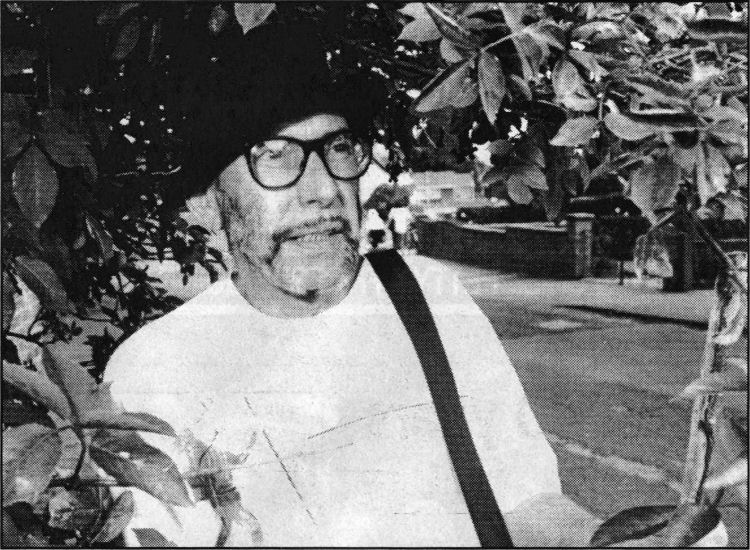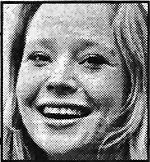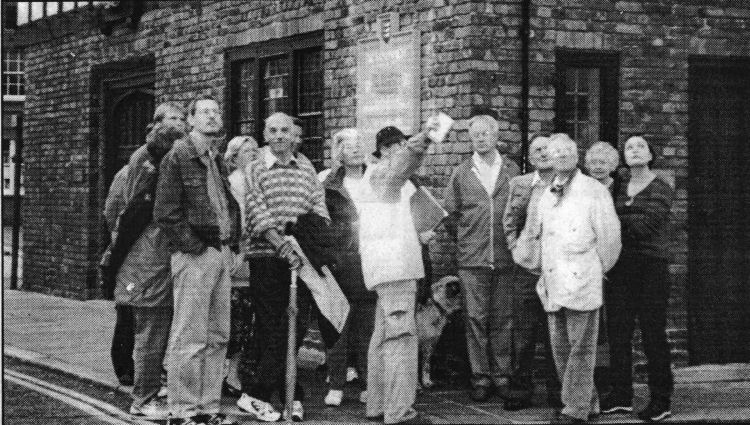|
From the Dover Express, 9 September, 1999. By REBECCA SMITH
I'm walking out with a history man who doesn't mind a pint.
Sandwich used to be one of England's most important towns, and its pubs
reveal much.


REBECCA SMITH
is never one to turn down a date with a man in a pub, but but when he
offers to turn that date into a tour of the town's pubs then it all seems too
good to be true. David Collyer is an expert in local history and he took
Rebecca and 20 others on a guided tour of Sandwich's hostelries.
WITH anecdotes and plenty and tales of derring-do to tell, historian
and author David Collyer led an eager band of walkers around historic
Sandwich.
Except in really miserable weather, David, 62, of Pilots
Avenue, Deal, can be found exploring towns and villages, rambling across
hill and dale.
You could find him anywhere, in fact, where the past
reveals itself.
In the name of historical interest, and NOT because of
an enthusiasm for alcoholic beverages, I joined David and friends to
drink up the history of some of the town's forgotten taverns.
Starting
from the Guildhall, the walk, called "Some Sandwich Pubs", was a whistle-stop trip down memory lane.
In its heyday - from Saxon times
under King Canute to the Tudors and Henry VIII - Sandwich was one of the
most important towns in the country.
It was a major port, route to
Canterbury for weary pilgrims and a first-line defence against hostile
French armies.
Soldiers, merchants and curious visitors all thronged the
streets of the bustling town.
And, of course, they had to have somewhere
to stay, eat and drink. Somewhere to while away the time in pleasant
company.
At least 32 pubs existed in Sandwich, but David, who has
written many books on local history, reckons the true figure is more
than double that. Today there are fewer than 20.
Some of the lost inns,
David tells us, were victims of Lloyd George's attack on drinking laws.
In a bid to keep munitions factory
workers off the ale, the Prime Minister slashed opening hours in 1916.
Others shut more recently.
There were closures in the 1960s. Smaller
beer companies, such as Gardener's in nearby Ash, sold out to the big
brewers. And they promptly closed some of the less profitable pubs.
David leads us down the streets and slipes - a medieval word for alley -
of Sandwich to seek out the ghosts of boozers past.
Some former pubs
hardly give any clue to their previous life, such as the HSBC bank
building off the Market Square, which in the 18th century was The
Mermaid.
While others such as the old Cinque Port Arms on The Chain
still have frosted glass at the windows, declaring port, and ale for
sale within.
Pubs which still remain also come under David's
historical microscope.
The New Inn on Delf Street, as David points
out, is anything but.
A pub has stood on the site since the 16th
century. The inn was much smaller with a theatre behind.
Sadly, it was
demolished in the 1950s, replaced by the current building.
With a
talent for theatrical performance, David entertains his audience, making
the walks a popular event. About 20 people came along when I went.
BUT the crowd do not give an easy ride. Answering questions or sometimes
pleading ignorance, David tries to stay one step ahead. These people
seem to know their Victorian brick from their medieval daub.

David's obvious enthusiasm for his subject creates a jolly, informal atmosphere.
The time flies by.
Back at the Guildhall it's time to turn the clocks
forward to the present day.
As a car whizzes past in the 20mph zone,
some of us can't help but yearn for a more peaceful age.
But there's
still plenty of time before last orders and its time to get the drinks
in.
A pint of your finest ale please, barman.
• LISTINGS of
David's walks can be found at the Deal Town Hall information office and
Deal Library.
|